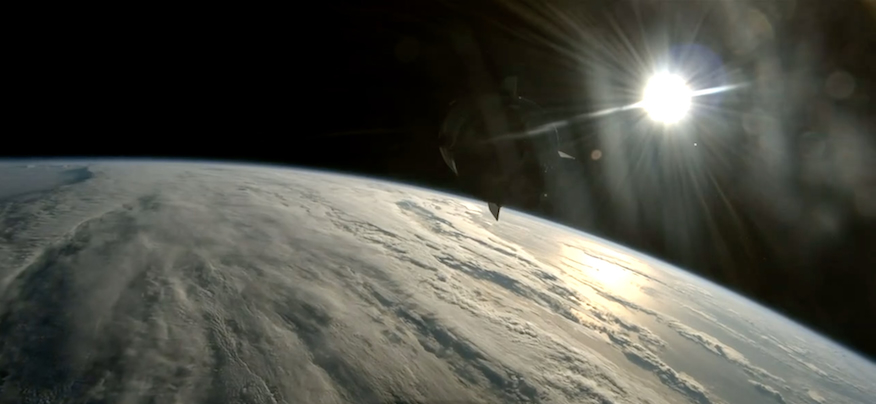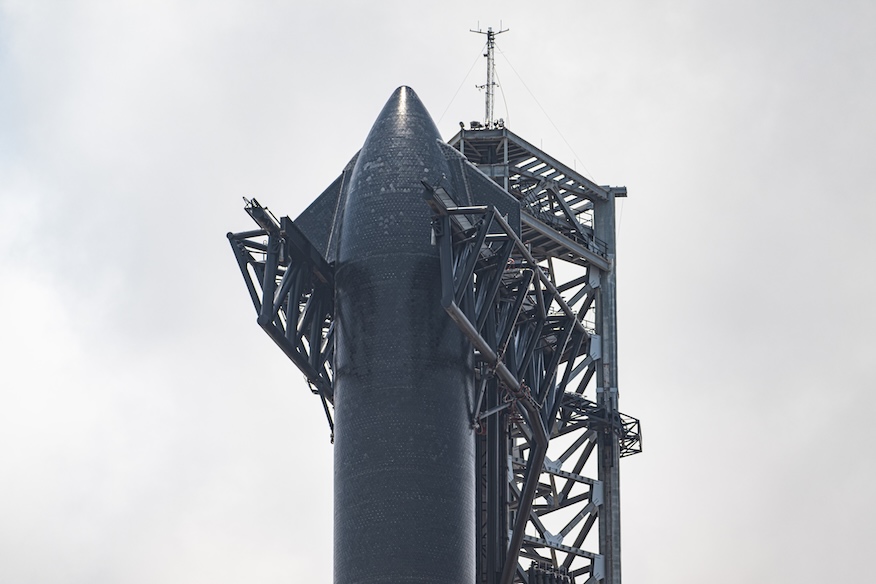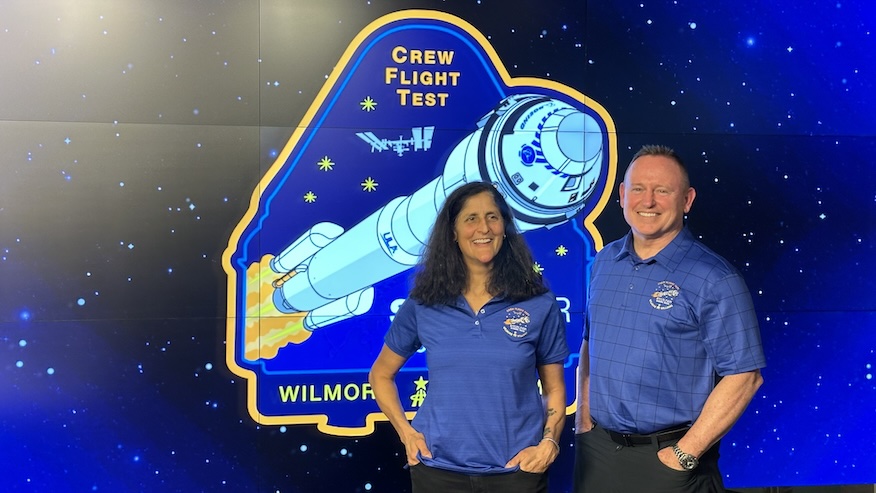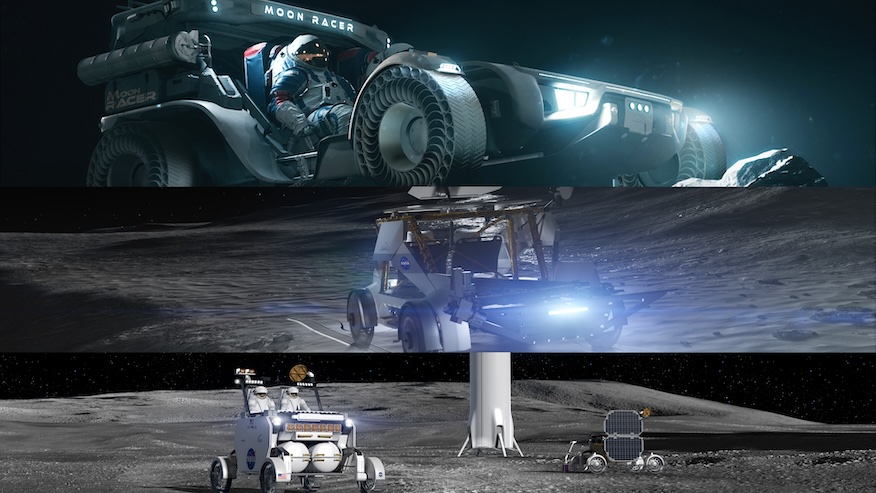
Update 6:06 a.m. EDT: Crew Dragon Resilience separated from the Falcon 9 upper stage.
Despite some challenging weather at the opening of the launch window, SpaceX managed to send the Polaris Dawn commercial astronaut mission up to low Earth orbit on the second of three available liftoff opportunities.
The predawn launch began the journey for four astronauts aboard the SpaceX Crew Dragon spacecraft, named ‘Resilience.’ The Falcon 9 rocket supporting the flight lifted off Tuesday at 5:23 a.m. EDT (0923 UTC).
“You embark on a journey, not just for yourselves, but for all of humanity. Each of you has trained tirelessly and prepared rigorously for this moment, the moment where we reach higher in space than ever before,” said Frank Messina, the Polaris Dawn launch director. “As you gaze towards the North Star, remember that your courage lights the path for future explorers.
“We trust your skills, your bravery and your teamwork to carry out the mission that lies ahead. Know that the team back here is with you every step, watching, supporting and cheering you on as you walk into space. We’re sending you hugs from the ground. God speed, Polaris Dawn crew. May you make history and come home safely.”
“Dragon, C.E. (chief engineer), welcome to orbit. The Dragon team is honored to help you start your incredible journey,” added Jared Metter, the chief engineer for the Polaris Dawn mission. “We hope you enjoyed the ride. The whole SpaceX family is looking up to you. Godspeed and good luck.”
“We appreciate the kind words. We wouldn’t be on this journey without all 14,000 of you back at SpaceX and everyone else cheering us on,” said Mission Commander Jared Isaacman. “We appreciate it and we’re going to get to work now.”
Polaris Dawn, the first of three planned missions for the Polaris Program, will feature the first commercial spacewalk, an on-orbit demonstration of Starlink and sending its crew further from Earth than humans have gone since the end of the Apollo era.
Its crew consists of Isaacman, the CEO of Shift4 Payments and commander of the Inspiration4 mission; former U.S. Air Force pilot Scott ‘Kidd’ Poteet; and SpaceX employees Sarah Gillis and Anna Menon. Gillis and Menon became the first current SpaceX employees to travel to space.
The mission is a free-flying flight of Resilience, which will last a little more than five days in total. Because of that, SpaceX also needed to have good recovery weather for splashdown off the coast of Florida.
Following an initial ground systems issue during the first launch attempt, splashdown weather has been the sticking point that kept this mission on the ground until now. In its post announcing the new target launch date on X, formerly Twitter, SpaceX said that “conditions at the possible splashdown sites for Dragon’s return to Earth remain a watch item.”
“This is a big improvement over the last two weeks,” Isaacman said in a post on X prior to launch. “We are getting closer to getting this mission to orbit.”
Coming into the launch, the National Hurricane Center was tracking Tropical Storm Francine in the Gulf of Mexico along with two other storm systems making their way over the waters of the Atlantic Ocean.
“An elongated area of low pressure over the central tropical Atlantic is producing some disorganized shower and thunderstorm activity,” the NHC wrote. “Environmental conditions appear only marginally conducive for some slight development during the next couple of days, but a tropical depression could still form during that time while the system moves westward at 5 to 10 mph over the central tropical Atlantic.”

The Falcon 9 rocket supporting the mission, tail number B1083 in the SpaceX fleet, launched for a fourth time on this flight. It previously supported the Crew-8 mission to the International Space Station as well as sending two batches of SpaceX Starlink internet satellites into low Earth orbit.
With the Crew Dragon spacecraft stacked on top, the launch vehicle stands at 65 m (213.3 feet) tall. Named ‘Resilience,’ the Dragon made its third trip to space after launching both the Crew-1 mission and Inspiration4, Isaacman’s first voyage beyond Earth.
Because Resilience will be launched into a 190 x 1,200 km (118 x 746 mi.) orbit at a 51.6 degree inclination, B1083 will land on the SpaceX droneship, ‘Just Read the Instructions,’ about 9.5 minutes after liftoff.
Time was running short to get this mission off the ground. NASA needs SpaceX to start readying the pad at Launch Complex 39A for a Falcon Heavy launch. That rocket is needed to launch NASA’s Europa Clipper mission on its way to the Galilean moon of Europa.
The planetary launch window opens up on Oct. 10 and it will take weeks for the conversion of the pad from a Falcon 9 to a Falcon Heavy configuration.
“SpaceX continues to improve and reduce the LC-39A pad conversion processing timelines when changing configuration between Falcon 9 and Falcon Heavy,” said Tim Dunn, the senior launch director for NASA’s Launch Services Program. “LSP will utilize these improvements for the Europa Clipper mission. The exact number of days required for the configuration change has not been finalized but it will be less than 25 days.”




